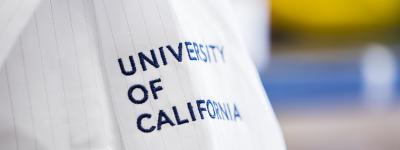
UCSF Researchers Awarded Competitive Grant to Fund Immunotherapy Studies
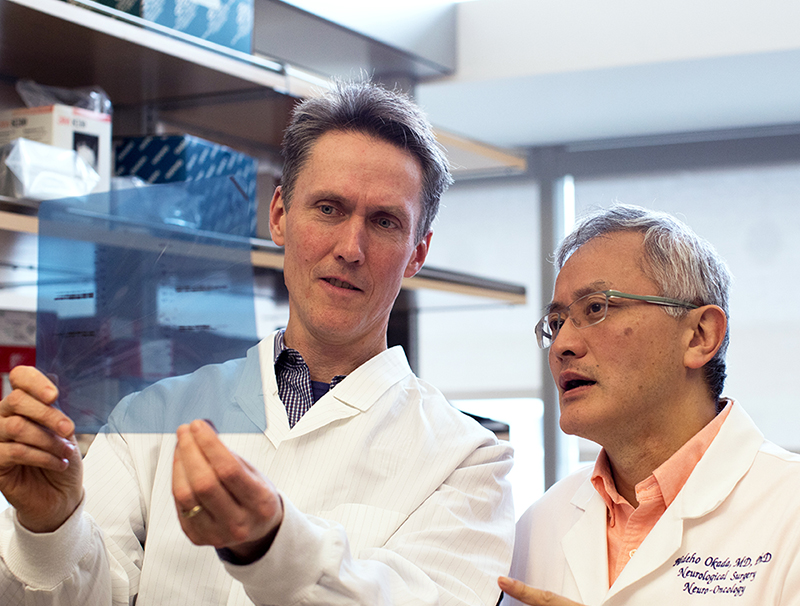
UCSF researchers Joseph Costello, PhD, Hideho Okada, MD, PhD, and Aaron Diaz, PhD were awarded Brain Tumor Funders' Collaborative (BTFC) grants for their innovative work on immunotherapy strategies.
The BTFC, which includes six private funders of brain tumor research, announced today $3 million in grants to four teams of researchers and clinicians working on immunotherapy for brain tumors. UCSF faculty are involved in two of these four projects.
Personalized Treatment Vaccines
Immunotherapy encompasses a variety of treatments aimed at helping a patient’s immune system fight cancer. Researchers in the Costello and Okada Labs are focused on developing personalized treatment vaccines that are specific to each patient’s brain tumor.
Neoantigen vaccines in particular are designed to target molecules (called neoantigens) that are encoded by mutated genes in the tumor. Not all brain tumors have the same neoantigens, so the Costello and Okada Labs are investigating a novel platform for finding and validating the neoantigens present in an individual patient's tumor for personalized vaccines. The vaccine initiates an immune response so that tumor cells with particular neoantigens are more readily identified and attacked by the immune system.
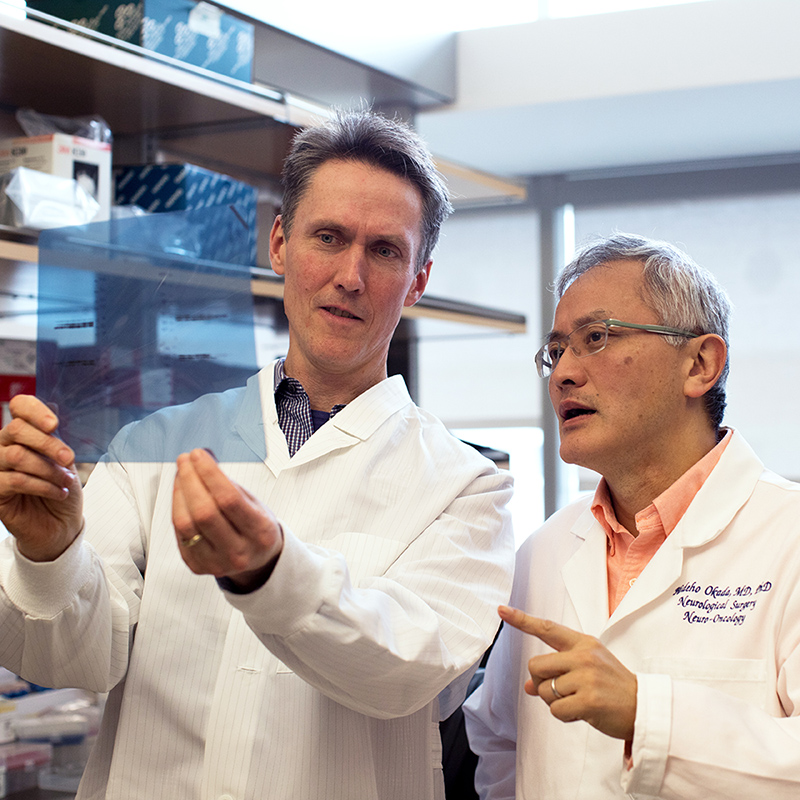
Identifying suitable neoantigens for immunotherapy vaccines can be challenging due to the way brain tumors develop. Previous research by the Costello Lab has found that tumor cells develop different mutations over time, and especially in the case of gliomas, during the progression from low-grade to high-grade glioma. Another complication is that a single tumor often harbors different mutations in different areas; a mutation found in one tissue sample may not be representative of the entire tumor.
To address these challenges, the Costello and Okada Labs developed a 3D immuno-genomics approach that collects and analyzes samples across the tumor volume. Using this method to examine a patient's tumor at initial diagnosis and again at recurrence, they can identify neoantigens that are present throughout the tumor and persist over time. Such neoantigen targets may prove more successful than those currently found using single sample analysis.
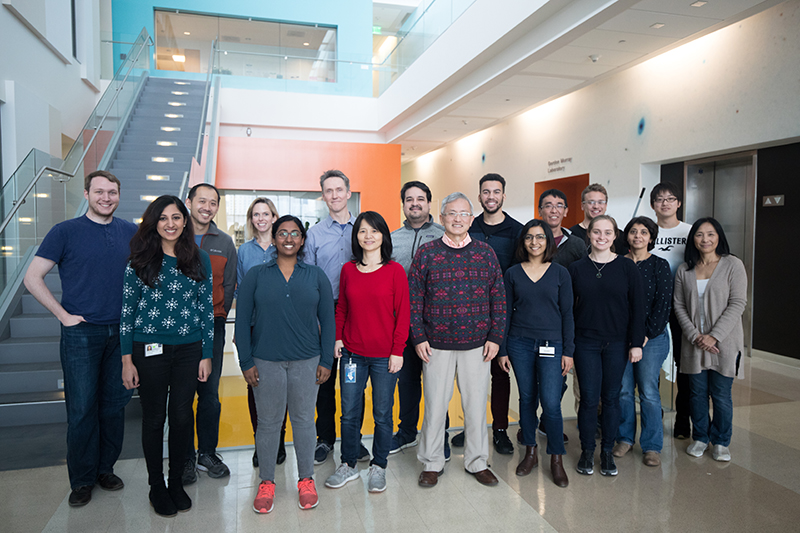
Immunotherapies like these have the potential to develop as an effective and safe treatment strategy, especially for patients with low-grade glioma (LGG). Slow tumor growth in LGG allows more time for multiple vaccinations and therefore higher levels of anti-glioma immunity. Because patients with LGGs are generally not as immuno-compromised as patients with high-grade glioma, they may also have a greater immune response to the vaccines.
Based on the results of this BTFC-funded research, Costello and Okada aim to develop a personalized neoantigen-based immunotherapy trial for patients with LGG.
T-Cell Receptor Therapy for Pediatric Tumors
UCSF researcher Aaron Diaz, PhD, in collaboration with Gary Kohanbash, PhD from the UPMC Children's Hospital of Pittsburgh, is investigating T-cell receptor (TCR) therapy for pediatric patients with high-grade glioma (HGG) and diffuse intrinsic pontine glioma (DIPG).
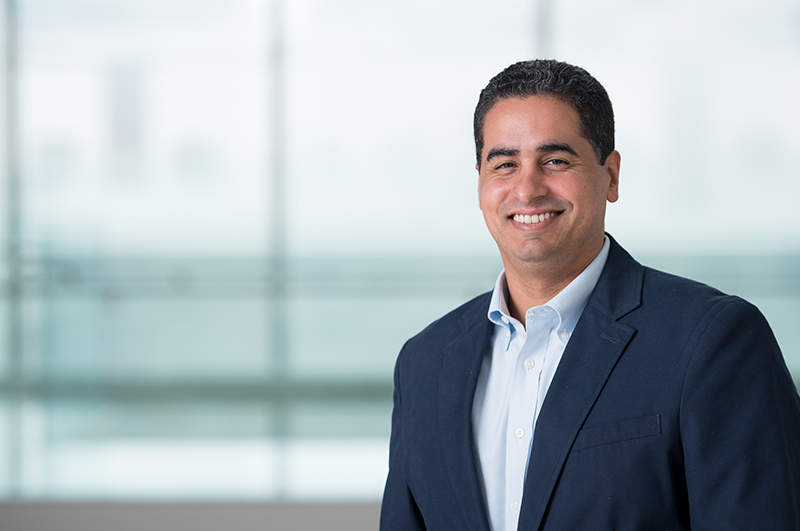
While a patient's immune system may recognize certain tumor-specific molecules (or antigens), the natural immune response is not enough to fully destroy the tumor. With TCR therapy, a patient's own T-cells are extracted from blood or tumor samples and genetically modified to better recognize and attack tumor cells. These modified T-cells are engineered to express TCRs that recognize antigens that are either enriched in tumor cells, or in the case of neoantigens, unique to tumor cells. After a growth period in the lab, millions of modified T-cells are then returned to the patient to help their immune system fight the tumor.
Although TCR therapy has been highly effective in some cancers, finding safe and effective TCRs for pediatric HGG and DIPG has been challenging. The Diaz and Kohanbash Labs have developed a novel approach for isolating viable TCRs from patient samples. By identifying the few T-cells that successfully target the tumors, Diaz and Kohanbash can use single-cell RNA sequencing to determine the most promising TCR sequences.
Isolated TCRs will be further assessed for tumor-specific killing capabilities in both cell culture and animal models. Validating these TCRs is a foundational step towards developing safe and effective TCR therapies for children with HGG and DIPG.
Learn more about these labs and their research at the Costello Lab, Diaz Lab, and Okada Lab websites.